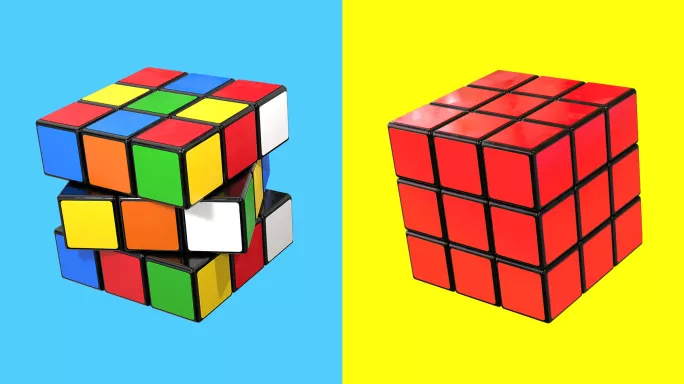- Home
- Teaching & Learning
- General
- How we dumbed down teaching - and what we must do to fix it
How we dumbed down teaching - and what we must do to fix it

Sat on stage at the Confederation of School Trustsâ annual conference, Sir Kevan Collins looked out at the audience and began to speak.
The recently appointed non-executive board member at the Department for Education warned of a ânarrow compliance cultureâ in some schools, to the âdegree of the slide stack weâre going to use in every lessonâ.
In these school cultures, he argued, âlonger, deeperâ processes are not prioritised and teachers âget really fed upâŚ[they] have to feel they have agencyâ.
Controversially, the former chief executive of the Education Endowment Foundation stated that he had ânever seen teachers more enslavedâ.
Teacher autonomy in schools
While the use of the word âenslavedâ may be perceived as hyperbolic by some, Collins presented a paradox that many will recognise: over the past 10 years, we have seen a tightening of control over the work of teachers at a time when the growth of multi-academy trusts has promised greater freedoms.
In theory, trusts can (until the Childrenâs Wellbeing and Schools Bill is implemented) determine their own curriculum, and they have the potential to leverage resource, capacity and expertise to develop more innovative approaches to teacher development.
In reality, few have done so. When offered greater autonomy, we have tended to lean more towards centralisation. And it is easy to see why.
- How much teacher autonomy is too much?
- Why US schools have fallen in love with scripted lessons
- The sweet spot for teacher autonomy and the war against fidelity
Exercising autonomy within a high-stakes accountability system will inevitably be perceived as risky, especially when accountability measures determine how schools are publicly validated and judged.
Understandably, in these circumstances, leaders will be drawn to approaches and initiatives that are measurable and easier to codify, and that meet grading criteria.
At best, this promotes consistent teaching practice around a clearly articulated pedagogical framework; at worst, it leads to a âteach by numbersâ approach in the cultures of compliance that Collins describes.
In both scenarios, we are creating a critical threat to the profession: in oversimplifying the complex, messy work of teaching and learning, we risk promoting a lack of intellectual curiosity, and perhaps embedding a reluctance to question approaches or think critically.
Weâre well on our way to dumbing down teaching.
A complex reality
How intellectual was teaching in the first place, you might ask.
There is certainly a school of thought that views teaching through a process-driven, economic filter: schools are there to take a child and transform them into a citizen via a series of inputs that society has decided upon, which we call a curriculum.
The teacher, in this scenario, is a delivery agent for the curriculum - an inert conduit for society, rather than an individual who interprets for themselves what makes a citizen or who brings their own thinking to that process.
âTeaching is not merely delivery but the modelling of critical thinkingâ
As we know, though, a teacher is never inert.
The reality of classrooms is complex. Learning is messy, invisible and as unpredictable as the behaviours of young people.
Every student response requires the teacher to make a micro-decision about what has been understood, what might need consolidating and where to go next: research conducted in the 1980s and 1990s suggests that a teacher makes at least 1,500 decisions every day.
The curriculum itself is not a static document: it comes to life in the hands of a skilled teacher, whose job is to foster engagement with its content. Far from acting as a delivery agent, every teacher knows that even the same planned lesson elicits different responses.

Teaching Macbeth to two Year 11 classes simultaneously one year, I found that neither followed the pathway carefully set out in my scheme of work.
Each group had their own co-constructed interpretation of the influences on the protagonistâs downfall, and both were well within the boundaries of acceptable response - neither was wrong.
And nor were they my interpretations. The ideas were born from class discussions that were exploratory in nature, where differing perspectives were debated and challenged, where there was no single ârightâ answer.
This is the art of teaching and the work of intellectual practice. If we believe that one of the purposes of education is to produce thinking citizens - and we should - we must recognise that teaching is not merely delivery but the modelling of critical thinking.
And while we can plan curriculum towards that end, we cannot control all of its outputs.
Identifying good teaching
So, what makes an intellectual practitioner? They:
- Understand that learning is transformative and opens up the world to young people.
- Foster critical thinking by encouraging analysis, questioning and independent thought, challenging ideas and debating different perspectives.
- Foster deep conceptual understanding of the disciplinary structures of their subject and forefront its concepts and big ideas, allowing students to access them. They explicitly teach the discipline, not just the content of the exam specification.
- Model intellectual curiosity and explore new ideas.
- Understand that learning is co-constructed and happens in the interaction between existing knowledge and understanding and new knowledge (it is different for every student and no two students will process in the same way).
- Model thinking by narrating the process. They reflect, contest knowledge and connect ideas out loud.
A âstack of slidesâ, such as Collins describes, could structure such practice but could not capture its complexity.
Teaching from a pre-set plan would reduce the professional to a delivery agent and deny them the agency to make responsive decisions to steer learning.
The evolution of autonomy
Of course, this is not a simple dichotomy: there are trade-offs to teachers being more than simple delivery vehicles and there are times when they need to be less autonomous.
In some schools, the nature of the improvement journey might require initial compliance with tightly focused frameworks and processes.
Where school leaders must rapidly establish clear boundaries for behaviour and gain the confidence of the community, establishing a baseline for effective teaching practice provides clarity and enables automaticity of consistent routines.
For less experienced teachers, or those who are struggling, less autonomy is often a necessity to ensure parity of experience for students.
However, this should only ever be a necessary stage of evolution, not the end goal.
The âlonger, deeperâ processes of improvement that Collins alludes to are more meaningfully underpinned by a nuanced approach to teaching and learning.
Sustainable improvement comes from empowering teachers with the agency to exercise professional judgement in decision making, based on their deep knowledge and contextual wisdom.
The sweet spot
In terms of trade-offs to find this sweet spot of intellectual freedom for teachers, letâs take a closer look at curriculum.
My first years as a teacher were marked by a lack of guidance on planning, a very shallow understanding of lesson sequencing and the designing of most of my own schemes of work.
This was not a model of robust preparation or sustainable workload, but it necessitated a level of hard thinking about the structure and flow of lessons that I now rarely see teachers being able to engage in.
Centralised curriculum models may support workload reduction, mitigate against the absence of subject specialists and facilitate a common understanding of subject content and optimal sequencing.
But we have tended to conflate the ends with the means: how we arrive at a shared curriculum model matters.
When we outsource the deeply intellectual work of curriculum design - be it to external agencies or internal specialists - we deny teachers opportunities for creativity and critical thinking, for joyful immersion in the patterns and rhythms of their subjects.
Curriculum is an ongoing dialogue between professionals. Deep engagement with subject content through purposeful collaboration is the highest form of professional growth.
It empowers teachers to more deeply understand their own areas of expertise and to self-identify gaps in knowledge - the very opposite end of the paradigm from being âenslavedâ.
Pedagogy paranoia
Letâs look at pedagogy, too. When I was a new and inexperienced teacher, there were days when, drowning in planning and marking, I would have swapped my dry lunch duty spot for a set of pre-written PowerPoint slides.
It would be foolish indeed to argue for a return to the days of planning in silos and the accompanying workload. The sector has, thankfully, moved on in that regard.
But equally absurd are the âcompliance culturesâ that Collins describes, where pedagogy is overcodified to the point of dictating âthe slide stack weâre going to use in every lessonâ.
Mandating lessons that restrict teachers from delivering in ways that they know work, where the content of pre-planned slides reduces the subject to lists of things to know and do, when the questions they can ask students are dictated and their responses assumed - that is a surefire way to make teachers feel completely disconnected from their subject and ask themselves whether this is a profession they want to stay in.
As Collins argued, teachers âhave to feel they have agencyâ.
A repetitive âteach by numbersâ approach denies professionals the mastery, autonomy and purpose that drives motivation.
Stripping intellectualism from teachers leads to shallow learning for students.
Getting the balance right
Of course, there are parts of teaching that will inevitably require more process than proactive intellectualism. But we have got that balance wrong.
So, why is that?
In the past 10 years, external forces have shifted us away from prioritising teacher intellectualism and from creating cultures in which teachers are trusted with agency.
An unintended consequence of system and organisational accountability is that measurement seems to promote consistency of teacher action rather than quality of teacher thought.
Teacher Tappâs Becky Allen has argued that each âeraâ of accountability that we have passed through has forced distortion because of a disproportionate focus on one thing.

The current curriculum era has favoured the efficient production of planning maps and medium-term plans, promoting the enticing view of the curriculum as âfinishedâ.
In some schools, learning walks will look more favourably on several classrooms of students doing (yes, âdoingâ) the same thing rather than the much more difficult-to-measure skill of teachers adapting the curriculum based on the needs of children in front of them.
This forced compliance renders assessment largely meaningless, too, as teachers find themselves hurtling through the curriculum for a false end goal. Inevitably, there is then a tendency to rely solely on the resource and the âdoingâ rather than focusing on learning.
Changes to national teacher induction and development programmes have further driven homogeneity of practice.
Intellectualism matters
Where prescriptive frameworks are rolled out at such scale with the goal of ensuring fidelity and consistency, the unintended consequence will be the deprioritisation of contextualisation and teacher agency.
A tightening of the reins on practice may seem to be the antidote to our current teacher recruitment and retention crisis, but getting the balance between process and intellectualism wrong could end up fuelling it.
We need to address this because intellectualism is critical to the profession.
The education secretary has made it clear that the recruitment of 6,500 new teachers in this Parliament is critical to the governmentâs ambitious opportunity mission. Ensuring a good teacher in every classroom is the best lever we have to give all children lives of choice and opportunity.
To this end, intellectualism in the profession matters. Teaching at its best is stimulating, inherently interesting work, and to promote it as such makes it an attractive career choice.
Practice that develops the kind of critically thinking, intellectually curious young people equipped to make positive change in a complex world relies upon intellectually proactive teachers in a system that values their agency.
Policy as the foundation
So, how do we create the conditions whereby teachers enjoy all those benefits?
Such a swing requires a reimagining of the professional status of teachers and a recognition that teaching isnât a set of strategies to deliver but the skilled adaptation of a âtoolboxâ of approaches built on a foundation of relational practice: âdoingâ the thing isnât the same as how it lands.
A repositioning of teaching as intellectual rather than process-driven work must be central to the government-led narrative about the profession.
For intellectualism to flourish in schools, policy must drive the systems and structures that enable it.
Englandâs 10 per cent minimum non-contact time for teachers is relatively low compared with other European countries, and many high-performing education systems provide significantly more.
Rich learning and purposeful collaboration can seem like a luxury in our current tightly squeezed timetables.
The AI âtidal waveâ
Accountability is crucial in driving high standards, but the current iteration of the Ofsted toolkit risks further dumbing down teaching by reducing it to a tick-box list of descriptors.
The next era must not drive a disproportionate focus on a reductive definition of practice. Intelligent accountability recognises inherent complexity and the need for contextualisation.
Developing highly skilled, flexible, adaptive practitioners further requires us to reconsider our current model of teacher development.
This is a timely consideration, given the reviews of the Early Career Framework, its underpinning Core Content Framework and National Professional Qualifications, which form the âgolden threadâ of teacher education in the UK.
Perhaps inevitably, given the scale at which they have been rolled out, these programmes - despite their many positive benefits - prioritise fidelity to tightly prescribed frameworks over contextualisation. This understates the need for leaders to exercise agency in making decisions that best serve their own schools.
âWe need to divert from our current path and put intellectualism at the heart of our professionâ
A model of professional development based on solving complex problems in context would better equip leaders and teachers to navigate, for example, the approaching tidal wave of artificial intelligence.
If we approach AI with criticality of thought, we will be in a stronger position to utilise it meaningfully and avoid falling prey to shallow adoption. If we employ AI to reduce marking workload, for example, we must consider how we retain the primary purpose of marking, which is for teachers to understand what students have learned.
This will require an evolution from the current âdeliveryâ model of professional development, where cognitive science research has often been oversimplified in its application to how adult professionals learn.
It would necessitate an approach that is less packed with knowledge content and more focused on the application and critical analysis of research. Research Schools should play a key role in the creation and dissemination of a broader evidence base.
At trust and school level, the welcome removal of performance-related pay has opened the gates for more meaningful teacher development processes underpinned by iterative cycles of learning and reflection.
It is on the ground where research hits reality, and teachers are best placed to interrogate the usefulness of evidence in helping them to solve the complex problems they face in their own classrooms.
Rediscovering the joy
It is within the gift of schools to facilitate processes and mechanisms that drive intellectual engagement - professional enquiry, subject-specific communities of practice and time for co-constructed curriculum development.
It is within the gift of school leaders to promote teacher agency by involving teachers in decision making and mobilising their expertise to drive school improvement.
If we want intellectually curious, critically engaged young people, then we need to divert from our current path leading towards the dumbing down of teaching and instead put intellectualism at the heart of our profession.
We need to trust our teachers with the agency to make choices in the contexts of their own classrooms.
And we need to reimagine teaching as a job where joyful immersion in your subject, reflective practice and lifelong intellectual curiosity are valued in the pursuit of educating young people.
Sam Gibbs is director of education at Greater Manchester Education Trust
For an indispensable look at the weekâs biggest stories and talking points, sign up for our Weekly Debrief newsletter
Register with Tes and you can read two free articles every month plus you'll have access to our range of award-winning newsletters.
Keep reading with our special offer!
Youâve reached your limit of free articles this month.
- Unlimited access to all Tes magazine content
- Save your favourite articles and gift them to your colleagues
- Exclusive subscriber-only stories
- Over 200,000 archived articles
- Unlimited access to all Tes magazine content
- Save your favourite articles and gift them to your colleagues
- Exclusive subscriber-only stories
- Over 200,000 archived articles
topics in this article



